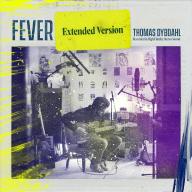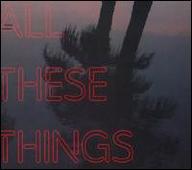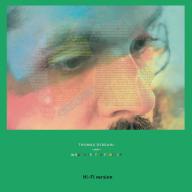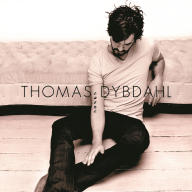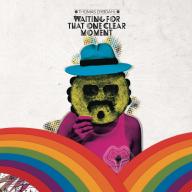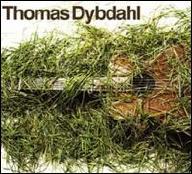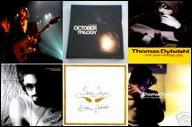Born in 1979, Dybdahl first caught the attention of music fans as a guitarist with the funk/acid jazz ensemble Quadraphonics, who had a following in their native Norway and eventually did some touring in Canada and the United States. Dybdahl had begun writing songs of his own with a folk-rock/alt-country feel that didn't fit in with Quadraphonics, and in 2000 he cut a solo EP, Bird. The record earned little press notice, and a second EP, 2001's John Wayne, fared no better. Dybdahl's luck changed with his first full-length album, 2002's ...That Great October Sound. Primarily written during a visit to New York City with Dybdahl playing most of the instruments; the album's leadoff track, "From Grace," was embraced by Norwegian radio and the album went gold. The follow-up, Stray Dogs, was equally successful, and in 2004 One Day You'll Dance for Me, New York City became Dybdahl's first album created specifically for release in the United States and Canada. (A Danish version was released a year later and was also made available as part of a box set with ...That Great October Sound and Stray Dogs, called The October Trilogy.) An album by Dybdahl's side project, the National Bank, was also released in 2004. He signed a deal with Rykodisc for the release of his fourth solo set, 2006's Science, and in the spring of 2007, he launched his first tour of the United States. Dybdahl returned in 2010 with a self-titled studio effort on PIAS as well as Waiting for That One Clear Moment on Universal. In 2011, he released the career-spanning overview Songs on Decca. After a lengthy international tour, he re-entered the studio in 2012 and emerged with the universally acclaimed What's Left Is Forever written and recorded in Los Angeles and produced by Larry Klein. In the fall of 2013, he scored the film Eventyrland for director/actress Arild Ø. Ommundsen; while he had contributed songs to movies before, this marked his first foray into cinematic scoring and he found it exhilarating. In 2015, Dybdahl collaborated with Norwegian jazz trio In the Country on a four-song EP, then resumed his solo career with 2017's The Great Plains, his seventh LP. After touring Europe and the United Sates, Dybdahl scored Now It's Dark, another film for Ommundsen, using a palette of ideas the pair gathered from listening to vast amounts of Fripp and Eno, Tangerine Dream, Popol Vuh, and other sources. He also traveled back to America, working in Los Angeles once more with Klein. On July 16, 2018, Dybdahl issued the single "Can I Have It All," that wove 21st century soul, whining pedal steel, and dreamy mellotrons into a nocturnal whole. Exactly four days later, overcome with enthusiasm, he dropped "Look at What We've Done" (a poignant, indie neo-soul offering) as a live video and streaming single. Simultaneously, he announced the October release of the Klein-produced, Los Angeles-recorded All These Things, an album loosely centered around the city of Los Angeles.
After touring and spending another four months writing, Dybdahl returned to his home studio in Stavanger, Norway to work once more with longtime collaborator and hip-hop producer Håvard Rosenberg. Initially intending to simply record and issue a single, the sessions quickly took shape as an EP, and eventually became the album Fever. Dybdahl had spent years being influenced by and working with top-flight producers and session players in studios across the globe. With Rosenberg as co-producer, he decided to apply what he'd learned for this project. He abandoned his trademark acoustic guitar in favor of a vintage Fender Telecaster and played almost all of the rest of the instruments himself. He was able to work fast, instinctively, and without fear of wasting anyone's studio time. Fever was issued in March of 2020 on V2. ~ Mark Deming, Rovi


